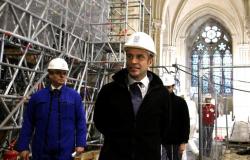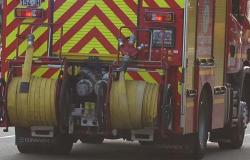Russia's invasion of Ukraine, which began on February 24, 2022, marked a major turning point in the perception of international security. That same day, Anton (name changed), a former officer at a Russian nuclear base, said the country's nuclear forces had been put on high alert. This exclusive testimony, collected by the BBCoffers a rare glimpse inside one of the world's greatest nuclear powers.
A nuclear base on maximum alert
According to Anton, nuclear weapons were ready for deployment in the air or at sea from the first day of the conflict. Although he was not directly involved in the war, his unit was responsible for protecting these strategic weapons. Life within this top-secret base, isolated from everything, was strictly regulated: total absence of cell phones and family visits subject to approval by the security services (FSB) months in advance..
| Pays | Number of operational warheads | Number of warheads deployed |
|---|---|---|
| Russia | 4 380 | 1 700 |
| United States (NATO) | Environ 4 000 | 1 644 |
Source: Federation of American Scientists
This alert lasted only a few weeks, but it was enough to reveal the extent of geopolitical tensions.
A modified nuclear doctrine
- Authorization of a strike in response to a massive conventional attack.
- Explicit inclusion of foreign support (nuclear states) in the response criteria.
- Maintaining non-strategic strike capability (tactical nuclear weapons).
These changes, coupled with recent missile tests, are intensifying concerns in the West.
Between maintenance and obsolescence
Western experts question the functionality of Russian weapons, arguing that part of the arsenal dates from Soviet times. However, Anton rejects this idea, insisting that nuclear forces are constantly kept on alert. He mentions permanent patrols on land, sea and air, as well as rigorous training programs for soldiers.
Nuclear weapons maintenance work never stops, not for a single minute
Questions about the credibility of the arsenal:
Can these aging systems compete with modern Western technologies?
Could military escalation lead to a fatal strategic error?
Soldiers reluctant in the face of an unjustified war
For Anton, the red line was crossed when he was asked to promote propaganda claiming that Ukrainian civilians were legitimate fighters. Refusing to obey this order, he was transferred to a conventional combat brigade, often sent to the front lines as “cannon fodder”.
Anton's case highlights a little-discussed phenomenon: many Russian military personnel disapprove of the war. With the help of humanitarian organizations, he managed to flee Russia, but not without risking severe reprisals. Despite doubts about the state of its equipment, Russia maintains a colossal nuclear deterrent force. With 1,700 warheads ready for deployment, its arsenal remains one of the most impressive in the world. Recent doctrinal developments, associated with growing geopolitical tensions, remind us that the nuclear threat is never completely ruled out.





